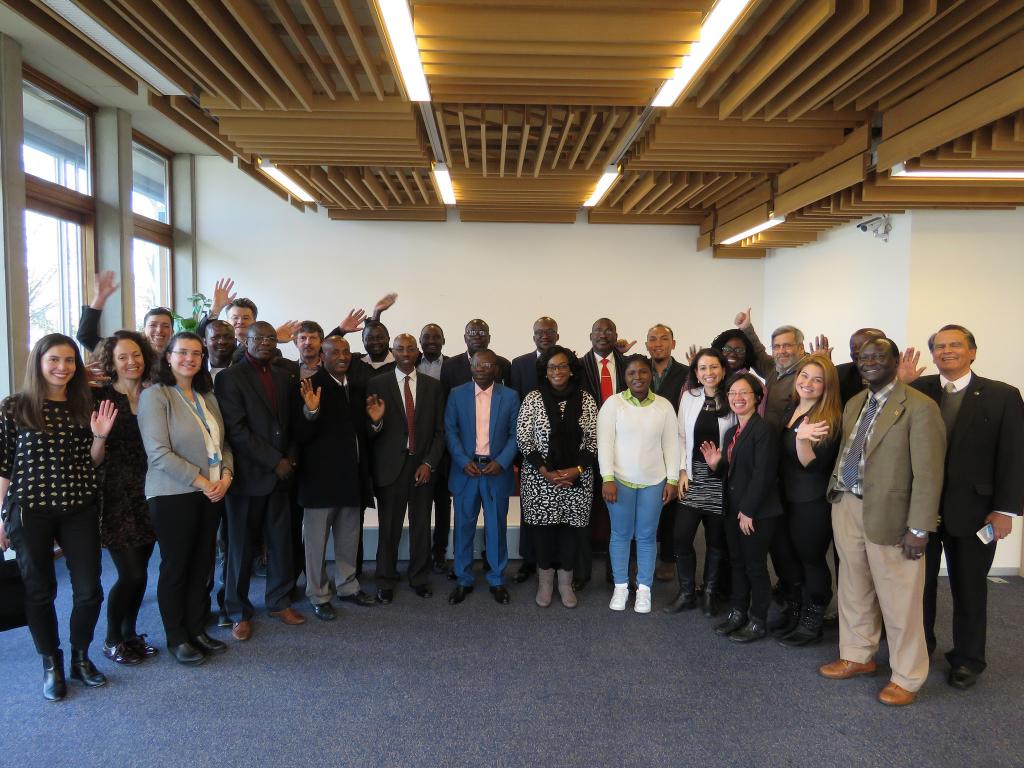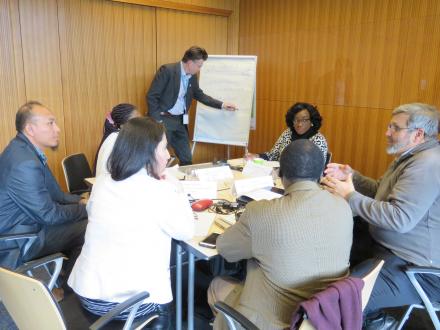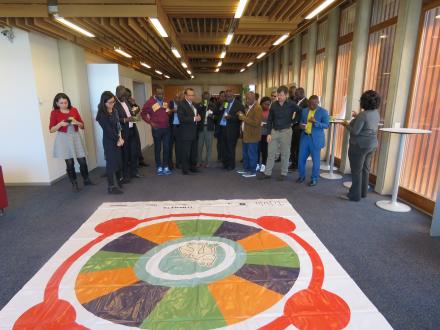UN CC:Learn Partner Countries Share Experiences on the Implementation of their National Learning Strategies
09 March 2018, Geneva, Switzerland - From 7 to 9 March 2018, UN CC:Learn held a 3-day workshop to promote knowledge and experience sharing among its partner countries on the development and implementation of their national climate change learning strategies. Participants had the occasion to exchange on a set of specific topics through a multiplicity of interactive presentations, group activities and moderated discussions, supported by expert interventions.

On the first day, country representatives provided input on the set-up of the 2017-2020 implementation phase of UN CC:Learn. They then discussed the diverse and innovative activities their countries are implementing to advance climate change education and training at different levels (from policy development to dissemination of dedicated school materials). Opportunities to work through international education initiatives as well as through national and regional learning institutions were highlighted.

The second day provided an occasion to reflect on the identification of learning priorities that can effectively support the implementation of Nationally Determined Contributions (NDCs) and National Adaptation Plans (NAPs), allowing the UN CC:Learn Secretariat to gather input to review its country project methodology. A discussion on the importance of education and training to enhance action under the Paris Agreement concluded the session.

The third day was structured around resource mobilization, with a focus on accessing the Green Climate Fund (GCF) to finance climate change education and training and on engaging with private sector entities. Three representatives from banking and investment management companies participated in a panel discussion, sharing with workshop attendees their visions, interests and concrete activities to address climate change and promote greener economies and highlighting the necessity to invest in learning.
At the end of the event, participants expressed their appreciation for this unique exchange space provided within the UN CC:Learn programme.
The photo gallery is available on the UN CC:Learn Flickr.
About UN CC:Learn
UN CC:Learn is a partnership of more than 30 multilateral organizations supporting countries to design and implement systematic, recurrent and results-oriented climate change learning. At the global level, the partnership supports knowledge-sharing, promotes the development of common climate change learning materials, and coordinates learning interventions through a collaboration of UN agencies and other partners. At the national level, UN CC:Learn supports countries in developing and implementing national climate change learning strategies. Through its engagement at the national and global levels, UN CC:Learn contributes to the implementation of Article 6 of the UNFCCC on training, education and public awareness-raising, and the 2012-2020 Doha Work Programme. Funding for UN CC:Learn is provided by the Swiss Government and UN partners. The Secretariat for UN CC:Learn is hosted by the UN Institute for Training and Research (UNITAR).
Photo 1: Representatives from: Benin, Burkina Faso, Central American Integration System, Dominican Republic, Ethiopia, Ghana, Indonesia, Malawi, Niger, Uganda, SDC, FAO, UNFCCC, WMO, UN CC:Learn Secretariat.
Photo 2: Countries are sharing their experiences on the implementation of national learning strategies.
Photo 3: Countries are exchanging their experiences on climate change education.

